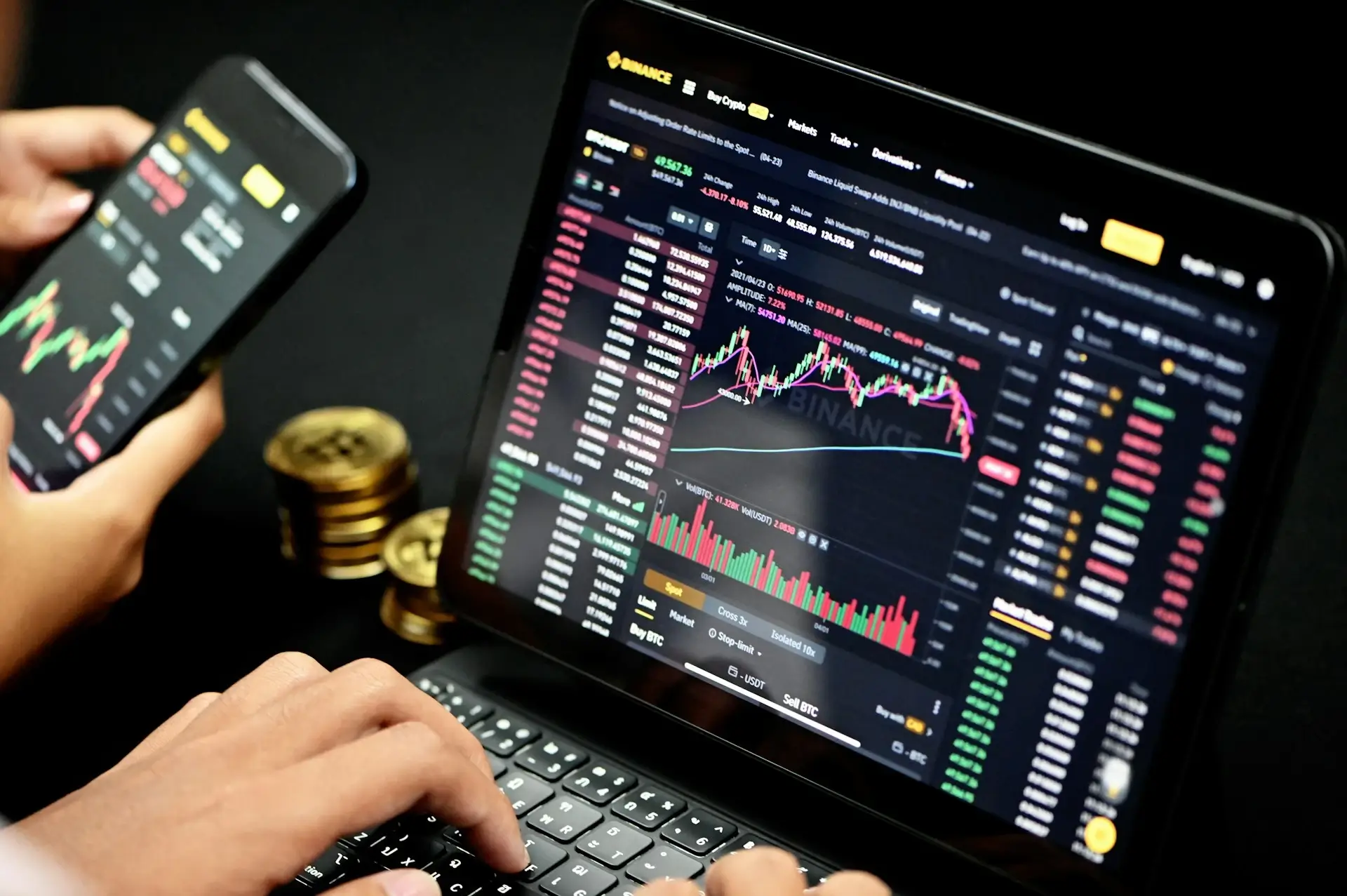Forex Trading for Beginners: Your Comprehensive Guide to Mastering the Market
The allure of the foreign exchange market, or forex, beckons countless aspiring traders. With its 24-hour accessibility and the potential for significant profits, forex offers a dynamic and exciting avenue for financial participation. However, for beginners, navigating this complex marketplace can seem daunting. This comprehensive guide aims to demystify forex trading, equipping you with the essential knowledge and strategies to embark on your trading journey with confidence.
Unveiling the Forex Market: A Global Financial Powerhouse
The forex market dwarfs all other financial markets in terms of daily trading volume, averaging over $5 trillion. Unlike stock exchanges with designated trading hours, forex operates continuously across the globe, influenced by a multitude of factors. Currencies are traded in pairs, with the value of one relative to the other constantly fluctuating. This dynamic nature provides opportunities to profit by speculating on currency price movements.
Choosing Your Weapon: Selecting the Right Forex Broker
Your path to forex success hinges on selecting a reliable and reputable forex broker. Here’s what to consider:
- Regulation: Ensure your chosen broker is regulated by a recognized financial authority, such as the Financial Conduct Authority (FCA) in the UK or the National Futures Association (NFA) in the US. This safeguards your funds and fosters trust.
- Platform Functionality: Look for a user-friendly trading platform that caters to your needs. Whether you prefer a web-based platform or downloadable software, functionality is key. Consider features like charting tools, technical indicators, and order execution speed.
- Competitive Spreads: Spreads are the difference between the buy and sell price of a currency pair. Opt for a broker offering competitive spreads to maximize your profits.
- Educational Resources: Reputable brokers often provide educational resources like webinars, tutorials, and market analysis, empowering you to refine your trading skills.
Equipping Yourself for the Arena: Essential Forex Terminology
Effective communication in any field necessitates understanding the lingo. Here are some key forex terms to master:
- Pip: The smallest price movement of a currency pair. Most currency pairs are quoted to four decimal places, with a pip representing one-tenth of a cent (0.0001) for most major pairs.
- Base Currency: The first currency listed in a pair. For example, in EUR/USD, EUR is the base currency.
- Quote Currency: The second currency listed in a pair. In EUR/USD, USD is the quote currency.
- Lot Size: The standard unit of currency traded. Mini lots (usually 10,000 units of base currency) and micro lots (usually 1,000 units) are popular choices for beginners due to their lower capital requirements.

Understanding the Market Movers: A Look at Fundamental Analysis
Fundamental analysis focuses on economic factors that influence currency valuations. These factors include:
- Interest Rates: Higher interest rates generally attract foreign investment, strengthening the local currency. Conversely, lower interest rates can weaken a currency.
- Inflation: Inflation erodes the purchasing power of a currency. High inflation can lead to a currency’s depreciation.
- Political Stability: Political instability and uncertainty can negatively impact a nation’s currency.
- Economic Growth: A strong and growing economy typically strengthens the local currency.
Staying informed about global economic news, central bank policy announcements, and key economic data releases is crucial for fundamental analysis. This knowledge empowers you to assess the potential impact on currency valuations and make informed trading decisions.
Practice Makes Perfect: The Power of Demo Accounts
Most forex brokers offer demo accounts, allowing you to practice trading with virtual funds. This invaluable tool provides several benefits:
- Risk-Free Learning: Experiment with different trading strategies without risking real capital. Learn the platform functionalities and test your technical analysis skills under simulated market conditions.
- Building Confidence: Gain practical experience and refine your trading approach before venturing into the live market. Demo accounts help build confidence and a solid foundation for success.
- Developing Discipline: Trading success hinges on discipline. Demo accounts allow you to practice placing orders, managing positions, and adhering to your trading plan without the pressure of real money involved.
Embarking on Your Forex Trading Journey: Essential Strategies and Risk Management
While forex trading offers the potential for significant profits, it’s inherently risky. Here are some key strategies and risk management principles to consider:
- Develop a Trading Plan: Define your trading goals, risk tolerance, and exit strategies. Choose a suitable trading style (e.g., scalping, day trading, swing trading) that aligns with your personality and goals.
- Technical Analysis: Learn how to use technical indicators and chart patterns to analyze price movements and identify potential trading opportunities.
- Start Small: As a beginner, it’s wise to start small. Begin with a minimal investment amount and gradually increase your capital allocation as you gain experience and confidence.
- Risk Management is Paramount: Implement a robust risk management strategy. Utilize stop-loss orders to limit potential losses if a trade goes against you. Maintain a healthy risk-reward ratio, aiming to earn profits that significantly outweigh potential losses.
- Stay Disciplined: The emotional rollercoaster of the market can tempt you to deviate from your trading plan. Cultivate discipline and stick to your predefined strategies to avoid impulsive decisions.
Beyond the Basics: Exploring Advanced Forex Trading Concepts
As you progress on your forex trading journey, consider delving into more advanced concepts, such as:
- Position Sizing: This refers to determining the appropriate amount of capital to allocate for each trade based on your risk tolerance and account balance.
- Leverage: Forex brokers often offer leverage, allowing you to control a larger position size than your account balance permits. Leverage can magnify profits, but also significantly amplify losses. Use leverage cautiously and understand the inherent risks involved.
- Carry Trade: This strategy involves borrowing a low-interest-rate currency and investing it in a high-interest-rate currency, aiming to profit from the interest rate differential. However, currency fluctuations can impact the carry trade’s profitability.
Continuous Learning: Fueling Your Forex Trading Success
The forex market is dynamic and ever-evolving. Continuous learning is vital for long-term success. Here are some valuable resources:
- Forex Educational Resources: Utilize your broker’s educational materials, online forex courses, and reputable financial publications to broaden your knowledge.
- Market Analysis: Follow the insights of experienced forex analysts and traders. However, remember to develop your independent analysis skills and not blindly follow recommendations.
- Economic Calendar: Stay updated on upcoming economic data releases and central bank policy announcements. These events can significantly impact currency valuations.
The Binaryfxxtool Advantage: Your Gateway to Forex Trading Success
Binaryfxxtool.com is your one-stop shop for navigating the exciting world of forex trading. Our comprehensive website offers a wealth of resources to empower you on your trading journey:
- Broker Reviews and Comparisons: Find in-depth reviews of reputable forex brokers, allowing you to make informed decisions based on your specific needs.
- Trading Platform Reviews: Explore reviews of various forex trading platforms, helping you select one that aligns with your trading style and preferences.
- Educational Resources: Access a library of educational resources, including articles, tutorials, and video guides, covering essential forex trading concepts and strategies.
- Market Analysis: Stay informed with our insightful market analysis, providing valuable insights into current market conditions and potential trading opportunities.

Conclusion: Your Forex Trading Odyssey Awaits
Forex trading, while challenging, can be a rewarding endeavor. By equipping yourself with the necessary knowledge, strategies, and risk management practices, you can increase your chances of success. Remember, success doesn’t happen overnight. Be patient, and dedicated, and continuously learn to navigate the ever-evolving forex market. Binaryfxxtool.com is here to support you on your forex trading journey. With the right tools and dedication, you can unlock the potential of the forex market and achieve your financial goals.
Frequently Asked Questions (FAQ) for Beginner Forex Traders:
1. What is the minimum amount of money I need to start forex trading?
There’s no minimum amount mandated to start forex trading. However, it’s wise to begin with a small investment that you can comfortably afford to lose. Many brokers offer micro-lot accounts allowing you to trade with smaller capital amounts. Focus on developing your skills and building confidence before increasing your investment size.
2. How much money can I realistically make from forex trading?
The potential profits in forex trading are unlimited, but so are the potential losses. It depends on various factors like your initial capital, trading frequency, risk management strategies, and market conditions. Realistic expectations are key. Beginners should focus on learning and developing consistent trading strategies before aiming for significant profits.
3. Is forex trading a scam?
Forex trading itself is not a scam. However, there are fraudulent schemes that promise unrealistic returns or guaranteed profits. Always choose reputable brokers regulated by financial authorities and avoid any platform making such claims.
4. How much time do I need to devote to forex trading?
The time commitment required for forex trading depends on your chosen trading style. Scalping involves frequent trades throughout the day, demanding more active monitoring. Conversely, swing trading involves holding positions for longer periods, requiring less time commitment. Choose a style that aligns with your available time and preferences.
5. What are some common mistakes beginner forex traders make?
- Trading without a plan: Develop a trading plan that outlines your goals, risk tolerance, and entry/exit strategies.
- Overtrading: Don’t get caught up in the excitement and trade excessively. Stick to your plan and manage your risk effectively.
- Ignoring risk management: Always use stop-loss orders and maintain a healthy risk-reward ratio.
- Following emotions: Trading decisions should be based on logic and analysis, not emotions like fear or greed.
- Lack of continuous learning: The forex market is dynamic. Stay updated and keep learning new strategies and market trends.
By avoiding these common pitfalls and approaching forex trading with a strategic mindset, you can increase your chances of success.


